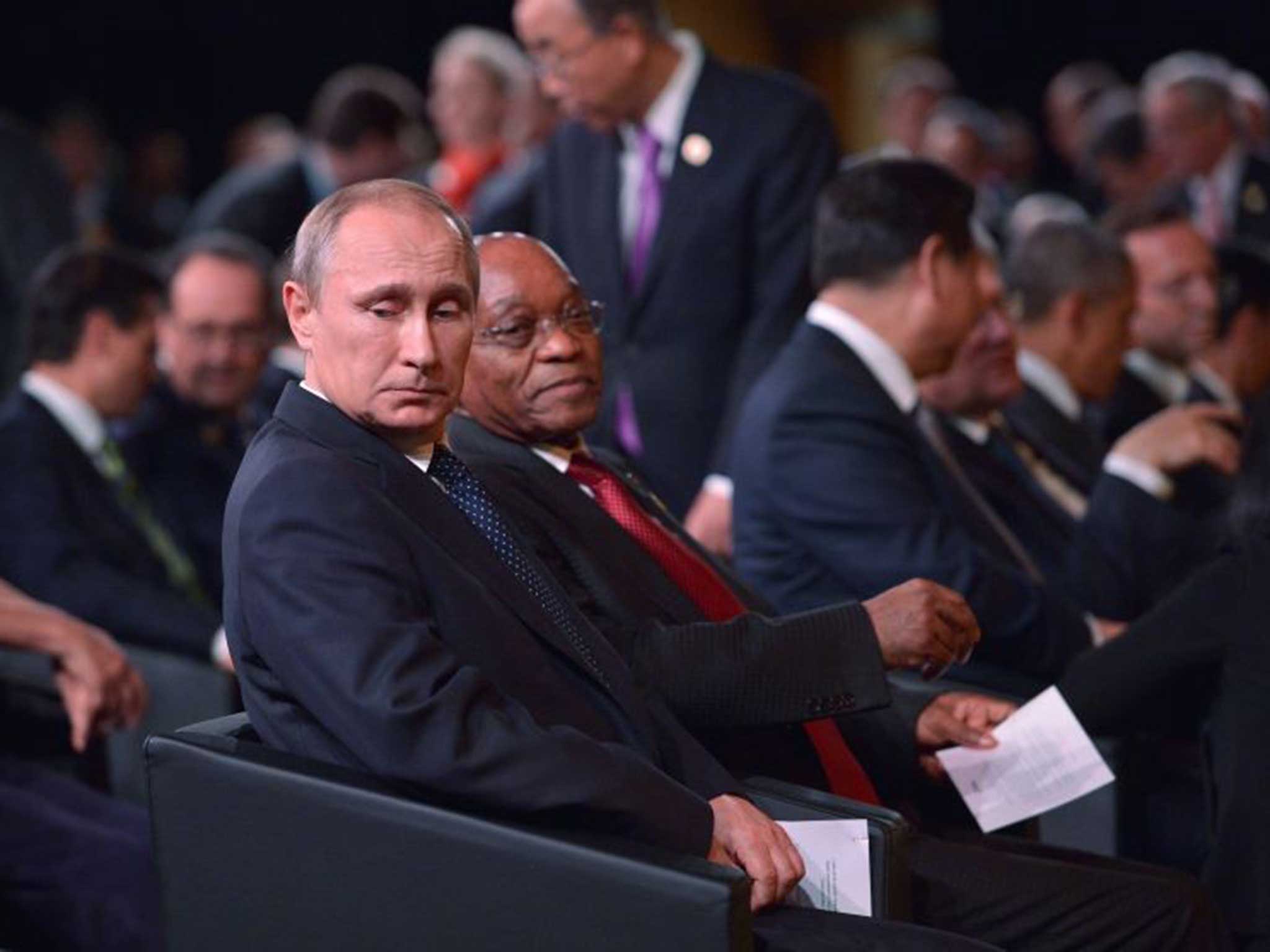G20 summit: Brisbane's script is already written; it's delivery that counts
The gathering in Australia is unlikely to come up with any surprises, but these meetings still matter

It is a summit of the G20, not the G7 or G8, this weekend in Brisbane – and that itself is the thing that matters most. I think we all have a certain scepticism about the value of economic summits.
True, if the leaders of countries accounting for some 86 per cent of world output gather in one room that is kind of important. But what matters is what they do after they go home, not what they say over dinner.
It is hard, for example, to see western plans for tighter sanctions on Russia being changed by the summit. There have been times when these meetings matter, such as the London summit in 2009 which helped coordinate policies to combat recession, but this is not one.
However, the present global economic tensions underline the importance of the emerging world as opposed to the developed world. It is true that those labels, though convenient, are becoming increasingly anachronistic: much of the emerging world has already emerged, while much of the developed world has stopped developing, at least in the economic sense.
True, too, the idea of the Brics as a group is looking a bit worn. Brazil, Russia, India and China remain the four largest emerging economies, as they were when Jim O'Neill, then chief economist for Goldman Sachs, coined the acronym more than a decade ago. But since then it has become even more evident that they are different in almost every respect, including economic performance and potential.
Over the past year or so there has been a reassessment of the Brics' advance. Chinese growth is slowing, albeit to around 7 per cent, but that is a reminder that eventually its great burst of growth will ease back to rates more like those of the West.
Brazil is stagnating and it will be interesting to see if Dilma Rousseff's new government pushes a more pro-business agenda to try to revive it. As for Russia, the fall in the oil price is doing as much damage as western sanctions, and the underlying fragility of an economy dependent on energy and mineral exports is exposed. Only India, with its new prime minister Narendra Modi accorded rock-star status in Brisbane, seems to be fulfilling the Bric dream.
Some sort of retreat from the adulation of the Brics was surely inevitable, but it is also rather healthy. Of course the emerging world is a vastly disparate entity and, of course, there are parts which are going backwards. But there are other parts, notably much of Africa, that are doing rather better than expected a few years ago. Taken as a whole the emerging world is outpacing the developed world every year and barring some catastrophe, will continue to do so.
Take the forecasts for this year. Of the two largest emerging economies, China is expected to grow by 7.3 per cent and India by 6 per cent. By contrast, growth in the United States looks like being around 2.2 per cent, Japan 0.9 per cent, while the eurozone will be pushed to reach 0.8 per cent. What we are seeing is not so much a two-speed world but a three-speed one, for there is now a huge split within the developed world between a clutch of countries going reasonably fast, including the US and UK, and those barely moving at all, especially the eurozone and Japan.
It is very hard to see this Brisbane summit doing anything that might bring faster growth for all. A package of measures will be announced – it is already agreed – but the follow-through is what matters. The package is supposed to add 1.8 per cent to growth through to 2018, which if achieved would be material.
But experience does not bode well. There are rifts between the US and Europe. For example, the US administration would like to see Germany using its financial strength to drive European growth.

On Friday Angela Merkel's coalition presented Germany's first balanced budget for 45 years, cutting a final €400m (£320m) from public spending to do so. As she said before she boarded the plane to Brisbane, her government had to "make do with the revenue we take in". Some Britons may feel that is rather admirable, but it is not what this G20 summit is supposed to be about.
There is, more generally, a worry and a hope. The worry is that the concept of the G20 as the economic coordinating body won't work: it is too unwieldy, too cumbersome, too mired in political posturing. The experience of the previous G20 meeting last year in Vladimir Putin's home city, St Petersburg, supports that more gloomy judgement. The hope is that the G20 will evolve into something more effective as the balance of economic weight shifts further towards the more vibrant economies of Asia and Africa and away from Europe and Japan – and to some extent away from North America too.
Put it at its lowest, this Brisbane summit will do no harm, and that is more than can be said for a lot of economic policy in recent years.
Join our commenting forum
Join thought-provoking conversations, follow other Independent readers and see their replies
Comments
Bookmark popover
Removed from bookmarks